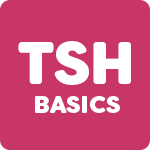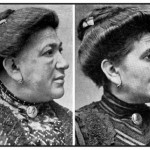At some point everyone has experienced Hypoglycemia, also known as low blood sugar. You may not know the term but you probably know the feeling. You wait too long to eat or eat high carb foods (say a bagel for breakfast), then within a few hours it feels like you hit a wall. You might feel these symptoms:
- Energy comes crashing down
- Weak and Shaky
- Irritable or Cranky
- Hot (like a hot flash) or sweaty
- Fuzzy head, trouble thinking clearly
- Become ravenously hungry
- Read more about Hypoglycemia symptoms
After eating a ridiculous amount of food, or having something really sugary your energy starts to recover slowly. It takes a while to rebound from the weak, lifeless state, and muster enough energy to get off the couch.
For over twenty years I experienced this kind of high-low energy cycle with Hypoglycemia. At one point, before getting treated for Hypothyroidism and Adrenal Fatigue, I asked a doctor about Hypoglycemia. He simply dismissed it and said: “No, nothing can be done about it. Just drink orange juice when it happens.” The problem was, I experienced Hypoglycemia about every two hours, that’s a lot of O.J.! I’m no doctor, but one would think having energy crashes every two hours means something else is not right.
Also worth noting, in the middle of a working-out I would often get Hypoglycemia. For me this meant with any kind of physical exertion I would get really week, start shaking and nearly collapse with exhaustion. This was totally frustrating because I wanted to exercise, and the doctors told me to “lose weight I just needed to exercise more.” But when the Hypoglycemia wall hit that was it, workout over. At that point orange juice just isn’t going to help. So the looming question was why was I getting Hypoglycemia and could it be prevented?
When I finally researched Hypothyroidism and Adrenal Fatigue, I was amazed to see Hypoglycemia as a symptom related to both conditions. How interesting! Finally an explanation that made sense, other than “No, nothing can be done about it…” With Hypothyroidism and Adrenal Fatigue, there are so many odd little symptoms it’s easy to pass them off as unrelated. But solving the root may solve the problem, as it did for me.

The solution turned out to be — you guessed it — getting on the right treatment for Hypothyroidism and Adrenal Fatigue along with diet changes. In particular, when I added the Hydrocortisone for Adrenal Fatigue, I noticed a big improvement with the Hypoglycemia. According to Wikipedia, Glucocorticoids like Hydrocortisone may help prevent or reverse Hypoglycemia.
When I learned that carbs and simple sugars are hard for people who have Hypothyroidism and Adrenal Fatigue, it all started to make sense. For years I would eat a bagel or cereal for breakfast which spikes the blood sugar, then two hours later my blood sugar would come crashing down causing Hypoglycemia (low blood sugar). Of course, as I later learned being carb sensitive, drinking a glass of orange juice was terrible for me (and started the whole high-low cycle all over.)
On the diet side, I removed simple carbs from my diet, replaced them with protein and fat, and started eating every two hours (rather than 3 meals a day, or worse, one meal a day!). It was pretty incredible to feel the difference in my energy and thinking.

These days I am much more stable, I rarely have Hypoglycemic crashes (even during exercise) and my weight stays in a healthy range. Before the Hypoglycemia hits, I am now able to recognized the early signs of hunger (just the slightest stomach pang) which prompts me to eat a snack (nuts or cheese, maybe with some apple). Before exercising I always eat this kind of snack and it works great to keep me going through the workout.
I know there is so much to learn, and it can all be overwhelming. Go easy on yourself and take it one bit of info at a time. When the energy is stable and you think clearly the rest gets so much easier!
















10 comments
Join the conversationmeli - February 11, 2011
hey, your blog is really interesting and has helped me start to learn what's up with me and my health. just curious, how was your cholesterol before and since treatment for hypothyroid? and do you expect to continue with the hydrocortisone indefinitely? also, were you aware of and have you done treatment of any kind for systemic yeast? thanks!!:)
Lizzy - February 11, 2011
Hi Melissa,Glad to hear the blog is helping you! Good questions…High Cholesterol… yes! When I was in high school I had high cholesterol (pretty sure it was due to thyroid). From what I have read, high cholesterol is commonly related symptom of Hypothyroidism. After being on natural desiccated thyroid treatment my cholesterol is great.Hydrocortisone… After taking it for 2 1/2 years, I think my adrenals are pretty strong now. So I am trying to scale back to 15mg a day or ween off (carefully watching how I do). Yeast (Candida)… oh yeah definitely! I hear this is really common with hypothyroidism. It's a terrible cycle, I had asthma and allergies (I think made worse by the hypothyroidism), doctors gave me tons of antibiotics, which then made the internal yeast go crazy, which made the asthma and allergies worse… Interestingly for me, it wasn't the "usual" yeast infections. For me, the yearst was in my sinuses (which mimicked sinus infections), mouth, lungs (mimicking asthma) and even on my skin (mimicking eczema). I would get painful burning around my mouth, and when I explained it to my doctor he said it was probably thrush which meant internal yeast (he is brilliant!). So I did several courses of a prescription antifungal to treat the candida. And that fixed it all (breathing, sinuses, skin, etc…)What I learned in the process is that yeast feeds off simple carbs (and for many hypothyroid people carbs seem to be really hard on our bodies). That's when I went to a carb-free, sugar-free, grain-free diet. I know it sounds extreme but I feel fabulous when I eat this way.Also, if I do have carbs, I find I have a yeast flair up so I know my body is really sensitive to yeast and carbsI should write a post about this. Great questions!xxooLizzy
Kirstin - May 13, 2011
Wow. Your blog pages sound just like what I've been going through. I need to get tested but I can't until 6/1 when my insurance kicks-in. Your symptoms are exactly what I've been going through for years, I really hope this is it because I'm sooooo ready to feel better. Thanks for the encouragement and insight.-Kirstin
Lizzy - May 15, 2011
Hi Kirstin,I am so glad my blog gave you insights and ideas! 6/1 is just a few weeks away. Body temperature is a free, easy way to understand what's going on with our bodies. Dr. Broda Barnes wrote about this 40 years, and yet many doctors pay little or no attention to it. So finding a doctor who looks at body temperature and symptoms is vital to good treatment.xxooLizzyhttps://www.misslizzy.me/blog/2011/4/19/how-important-is-body-temperature.html
misha - September 8, 2011
Hi,Common medical missconception is hypothyr. – high Insuling concentr. and hypoglycemic. How that can be? Symply, disauthonomia resulted in low T3.4 do not downregulate the Langerhans islets release insulin control so hyperinsulinemia results in hypoglycosis. In the critical cases fluids with additional D5, glucose, could be detrimental as in presens of high insulin it could facilitate intracelular K+ drive and cause life treatening arrhythmias. Hit me wiht questions, il be glad to helpmisakostic@hotmail.com
Diane - December 7, 2011
Hi Lizzy! Thanks for taking all the time to post this info. I have been having episodes of extreme headache, nausea and shakiness about 3 hours after a required 1.5 mile run for work. Hypoglycemia seems to fit the symptoms, and I am hypothyroid. I was looking up info today and noticed the adrenal/cortisol issues, and now, BAM, here is your story! The pieces all fit, if only I can convince my endocrinologist…I will be taking my temperature, blood glucose levels and other data to help convince her. Wish me luck!
Janet - June 5, 2013
Hi. Where would I have been without reading your blog. I suddenly started having massive crashes which laid me up for hours. As I have hypothyroidism I naturally thought that my fatigue was due to lack of the right level of thyroxine. Investigated it with my GP who said that I was at the optimum level for thyroxine – no further help offered. Totally perplexed accessed your blog and WOW everything fell into place. I started a low carb, no sugar eating plan topped up with Vitamine B Complex. The results were amazing within a two weeks. I am at last stable and know exactly what I have eaten and if anything triggers it. Thanks again.
Lizzy - June 29, 2013
Janet, I am so happy to hear you are feeling better. It brings me such joy to know that I was able to help. Love!!!
Michelle D. - January 28, 2014
Thanks for this article! I also came across another amazing article on some overlooked signs of hypoglycemia or prediabetes:http://www.drdnaturopath.com/index.php/3-most-overlooked-hypoglycemia-symptoms/Thought it was worth a share!
Lizzy - January 29, 2014
Thanks Michelle, this is a great article. It's so true — headache, fatigue and weight gain — are all tied into hypoglycemia and hypothyroidism. xo!